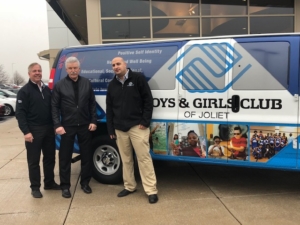Forfeiture Unit
The State’s Attorney’s Forfeiture Unit is responsible for the administrative and judicial forfeiture of assets seized under Article 36 of the Criminal Code and Drug Asset Forfeiture Procedure Act. The purpose of forfeiture law is to remove instrumentalities of crime from criminals – meaning that after a house, car or cash are taken from a drug dealer or manufacturer, they have lost the profits they had obtained from the illegal activities as well as the means for manufacturing and transporting the drugs.
Forfeited assets can include vehicles, watercraft, aircraft, currency, bank accounts, negotiable instruments, communications devices, computers, business assets, manufacturing equipment, and real property such as homes, commercial buildings, and farms.
Vehicles seized under Article 36 are forfeited to the Director of the Illinois State Police when that have been used to aid in the commission of certain crimes, such as murder, child pornography, sexual assault, burglary, arson, drive-by shootings, and driving with a license that has been suspended for a DUI.
Assets forfeited for violations of the Controlled Substances Act are used by the State, Police, local law enforcement, and the State’s Attorney’s Office to further the enforcement of narcotics laws. For example, narcotics officers use forfeited vehicles in undercover operations and forfeited funds to purchase surveillance equipment. Forfeited funds also are used to provide educational materials to the community to assist in the prevention of drug-related crime – such as literature directed at youth gang and prevention.
State’s Attorney Glasgow has used forfeiture monies to provide needed transportation to our veterans and area youth. Partnering with local businessman Terry D’Arcy, vehicles were provided at no cost to taxpayers to the G.W. Buck Boys & Girls Club of Joliet, Spanish Community Center, Forest Park Community Center, and Will County Veterans Assistance Commission. He also used forfeiture monies to provide transport vehicles and supplies to HERO (Heroin Epidemic Relief Organization), which uses a “Hidden in Plain Sight” trailer to educate community members about where drugs are commonly hidden in a teenager’s bedroom.
Additionally, State’s Attorney Glasgow has used forfeiture monies to pay for the purchase of drug detention K-9s in seven Will County communities — “Rookie” in Shorewood, “Sam” in Elwood, “Hutch” in Channahon, “Roxie” in Rockdale, and “Mao” in Wilmington, Dutch Shepherd “Tucker” in Park Forest, and “Simo” in Crest Hill. Most recently, the State’s Attorney also helped purchase explosive detection dog Loki for the Will County Sheriff’s Department. The State’s Attorney also provided the training and K-9 transport equipment for each of these K-9s. These canines are used by our local police departments to help take dangerous drug dealers off our streets.
Using forfeiture money in this way allows the government to use money seized from criminals to benefit our community.





